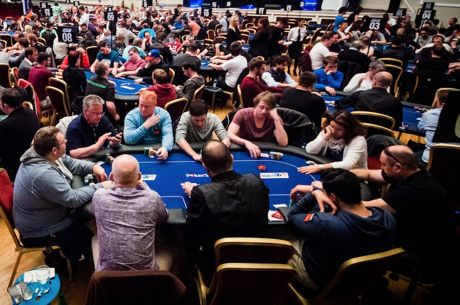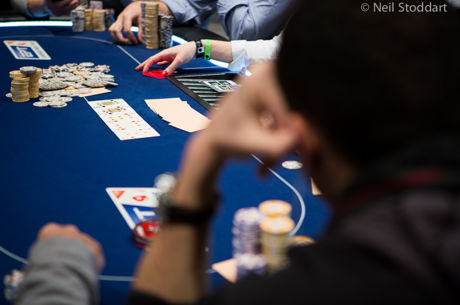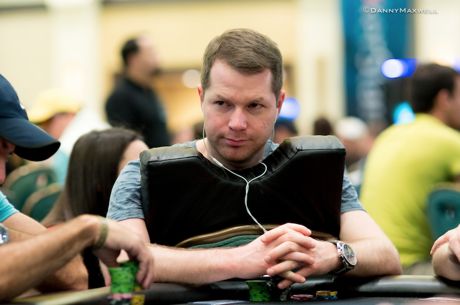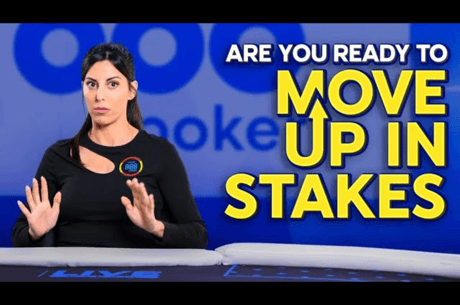Passive or Aggressive? Ranking Different Calls in Hold'em
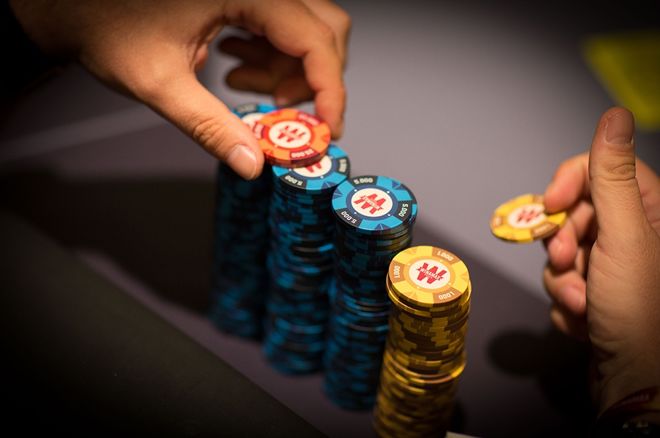
Typically those delivering no-limit hold'em advice highlight the benefits of playing an aggressive game and emphasize the problems that come from playing too passively. It's true that in many situations �� both in tournaments and cash games �� being aggressive is going to be a more advantageous style, but that doesn't mean you should never play passively in a given hand or situation.
Being "aggressive" typically refers to betting or raising when given the opportunity rather than taking the "passive" route of checking or calling. Beginning players sometimes mistake the advice to "be aggressive" to mean they should always be betting or raising, and that checking or calling automatically marks them as weak, passive players.
Get a little experience, though, and you soon realize there are many situations when checking your hand is just fine to do. Calling also isn't nearly as bad as some make it seem, and in fact calling could even sometimes be interpreted as an "aggressive" action in certain circumstances �� say, as a "I'm not going anywhere"-type response to another aggressive action like a check-raise.
A player who calls too much �� or calls unthinkingly �� is necessarily a passive player. But if you're calling selectively and with some idea about why you're calling, you're more likely to be making better calls that contribute toward a larger, winning strategy.
Thinking further about the subject �� and a little about poker terminology and how it both describes certain actions and influences how we think about those actions �� I thought of different kinds of calls and the relative "aggression" (or lack thereof) each seemed to demonstrate.
Following that line of thought, here are six types of calls loosely ranked from most passive to most aggressive.
1. The Crying Call
We've all made this one �� the "crying call" made on the river to close the action. We aren't confident we have a winner, but there's enough of a chance that we might to have convinced us to make the call.
This is obviously a non-threatening, non-aggressive play, and in fact is often made accompanied by statements like "I know you've got me."
While you shouldn't always be folding to river bets with your medium-strength or even weak hands, you probably shouldn't be making too many crying calls, either, as that's one mark of an overly passive style.
2. The Hero Call
A "hero call" is similarly a call coming at the conclusion of a hand that is made by a player who has a relatively weak holding, but suspects an opponent is bluffing with something even weaker. Hero calls are usually made with "bluff catchers" and other hands of modest value.
The hero call has to be regarded as relatively less passive than a crying call, given that the player making it generally has a bit more conviction about it turning out to be the right decision.
It might be just a matter of perspective, though, as what one person might describe as a hero call another might think of as a crying call.
3. The Overcall
An "overcall" is a call that comes after someone has bet and one or more players have already called the bet.
The term is usually used when describing postflop action, say on the river when there are at least three players in the hand, although it can be used to describe someone calling preflop, too, after others have called an opening raise.
A player who makes an overcall to close the action on the river isn't usually being all that aggressive �� in fact, the call might also be a hopeful, "crying call" based on pot odds and a dose of optimism.
However sometimes a player's overcall earlier in a hand should be regarded as scary to others still involved �� that is, a somewhat "aggressive" call. After all, it's a call made despite significant action occurring in front.
4. The Flat Call
A "flat call" occurs when a player calls a bet when it might have been expected the player would have raised.
For instance, someone raises from middle position. A player on the button picks up K?K? and chooses just to call rather than raise. Perhaps the player is hoping to induce a squeeze from someone in the blinds and will be reraising over than when the action gets back to him. Or the player in middle position has been especially loose with his preflop raises, so the button is looking to trap.
I'd rank a flat call as being one of those not-necessarily-passive plays that is made to appear passive, part of a larger, aggressive strategy to build a pot with a strong hand.
5. The Smooth Call
There really isn't much difference between a flat call and a "smooth call." The latter is also made in spots when a raise would be expected, and so like the flat call is often done as part of a strategy to induce an opponent to help you build a pot when you have a strong holding.
I chuckle sometimes when I hear friends describe a hand they've played, referring to a call as "smooth" when really it is just a loose-passive call with a speculative or weak hand. Then again, it's always great to have a positive self-image.
6. The Cold Call
A "cold call" refers to calling a raise after there has been a bet and one or more raises. Unless we're talking about a loose-passive player who calls all of the time without much judgment, I tend to regard a cold call as a relatively "aggressive" play.
Say I open a pot from middle position with A?Q? and an opponent raises from the button. It then folds to the big blind who cold calls the reraise. I was already not too happy to continue with my hand versus that first raise, but when the second player just calls the three-bet I'm even more concerned.
Maybe I'm being influenced by the terminology a little here, but the term "cold call" just sounds aggressive, doesn't it? That's what I think when those telemarkers manage to get through to me on the phone, anyway.
Conclusion
Feel free to question these rankings or add other kinds of calls to the list. Keep in mind, though, that calling isn't always to be regarded as undesirably passive and weak. In fact, some calls can be strong or even aggressive, when made thoughtfully and in the right circumstances.

